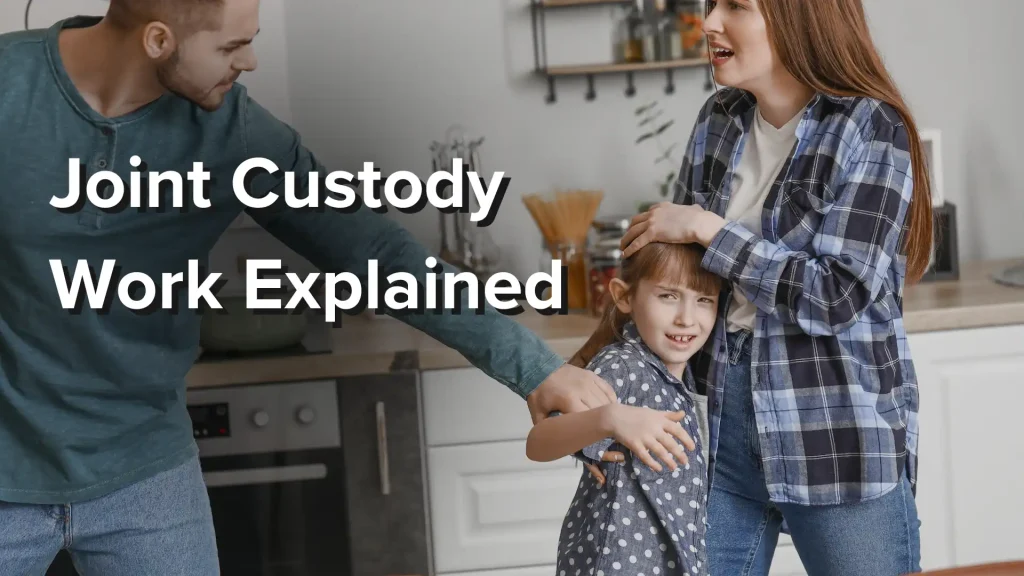
In many jurisdictions, courts prefer to settle on joint custody agreements because it helps children foster good relationships with their parents. When each parent gets actively involved in a child’s upbringing, that child tends to thrive physically, socially, and emotionally. Yet, what is a joint custody arrangement? While many people think the term is straightforward, there are specific legal distinctions to how joint custody works. How does joint custody work?
At Marshall & Taylor PLLC, our compassionate Raleigh family law attorneys want to help you understand what it means to draft a joint custody arrangement and how it works.
What Is Joint Custody?
Joint custody agreements are legal arrangements giving both parents equal access and decision-making power over their child, depending on the agreement. There are two separate categories of custody: physical and legal. Physical custody refers to where the child lives and which parent is responsible for caring for the child’s daily needs. Legal custody is separate. Legal custody refers to the responsibility for making decisions on the child’s behalf concerning long-term child-raising needs like education, medical decisions, religious upbringing, and recreational activities. How does joint custody work?
Unless there is abuse, drug use, or violence, courts prefer joint custody to help children bond with both parents. Many families find joint physical and legal custody ideal, as it allows shared decision-making and regular time with the child. However, other joint custody arrangements may fit a family’s needs. Some parents prefer a joint legal custody and sole physical custody agreement. Both parents can make important decisions for the child, but the child primarily lives with one parent
What Happens If the Custodial Parent Doesn’t Show Up to Court?
Child custody arrangements are often settled in court. If the court intervenes and handles a child custody case, both parents must present themselves to argue their case. Seldom is avoiding a court date in your best interest. When one parent, especially the custodial parent, fails to attend a scheduled court hearing, the court can move forward with making decisions based on the child’s best interests without that parent’s input. The other parent’s position can be taken as fact since no one is there to dispute it, which can result in an automatic judgment against the other parent.
Working with a knowledgeable family law attorney is crucial because they can manage legal deadlines and prepare you for what’s ahead. They advocate for you, ensuring the court hears your side and addresses your family’s needs.
How to Get Joint Custody Without Going to Court
 Sometimes, going to court to determine custody of a child is the only reasonable way to reach an agreement with an ex-partner. However, if you and your ex-spouse are on the same page about most childcare decisions and need help reaching the finish line, mediation may be a viable way to resolve your issues and avoid heading to court.
Sometimes, going to court to determine custody of a child is the only reasonable way to reach an agreement with an ex-partner. However, if you and your ex-spouse are on the same page about most childcare decisions and need help reaching the finish line, mediation may be a viable way to resolve your issues and avoid heading to court.
Mediation is an out-of-court alternative dispute resolution process. A neutral third party attempts to foster communication between two parties to help them arrive at a mutually beneficial custody agreement that meets everyone’s needs. During mediation, the mediator works with both sides to find common ground and address each parent’s concerns and goals. They do not offer advice or pick sides. A mediator encourages communication and compromise so couples can resolve minor differences or disagreements.
Going to court can be a costly and time-consuming process. Mediation can be much less frightening and stressful. It is also a cheaper and more cost-effective way to settle minor differences in opinion. However, having an attorney with you during mediation is still in your family’s best interest. An attorney can help you through the process and address your needs and concerns.
How a Family Law Attorney Can Help
Joint custody arrangements can benefit you and your child. However, reaching an amicable joint custody agreement can be challenging. Working with an experienced family law attorney means you have an advocate on your side, someone willing to fight for your family. At Marshall & Taylor PLLC, our team of family law attorneys can help you find the right custody balance for you and your child.
For your confidential legal consultation, you can call (919) 833-1040 or contact us online. We care about happy, healthy families.
